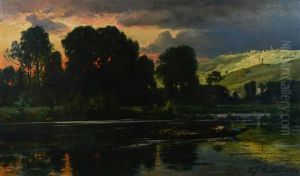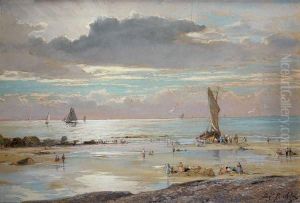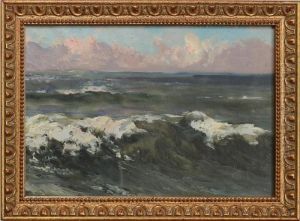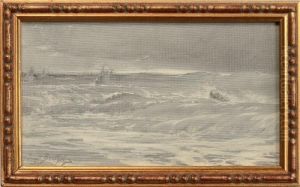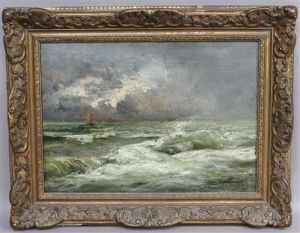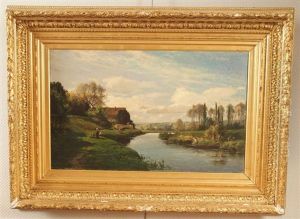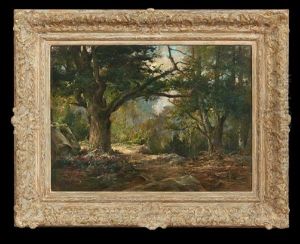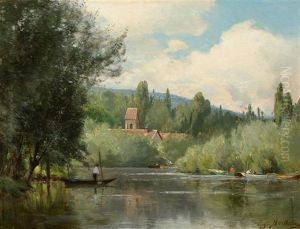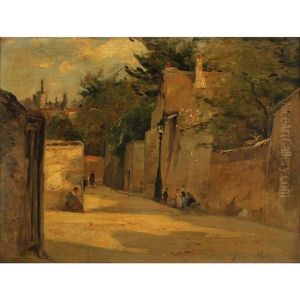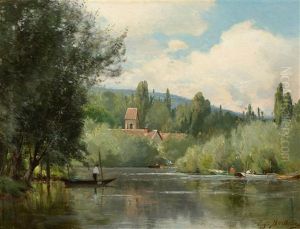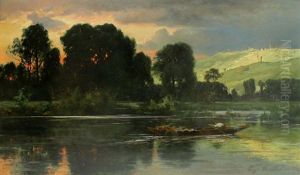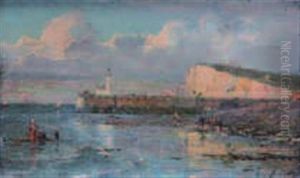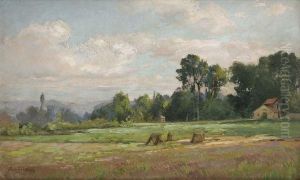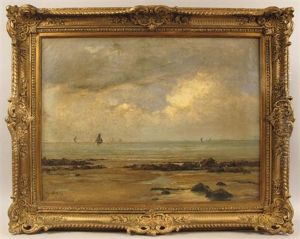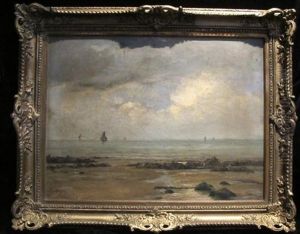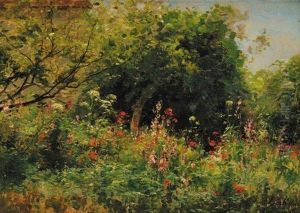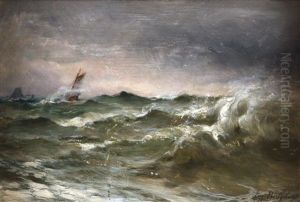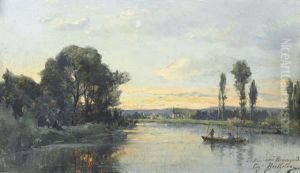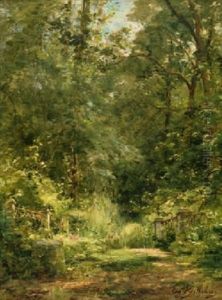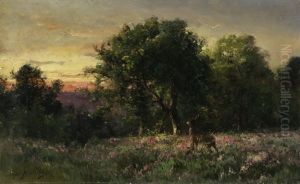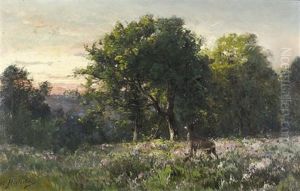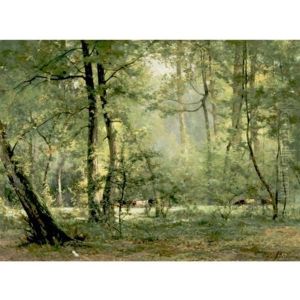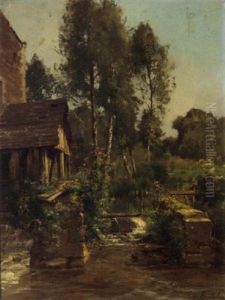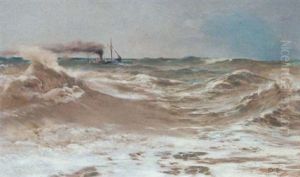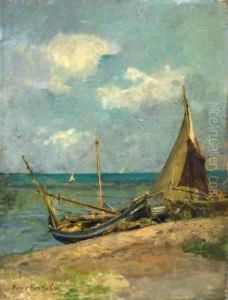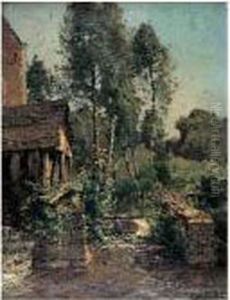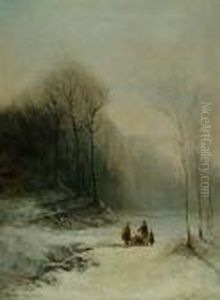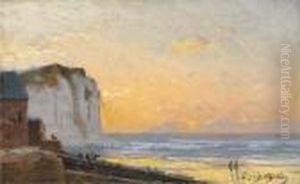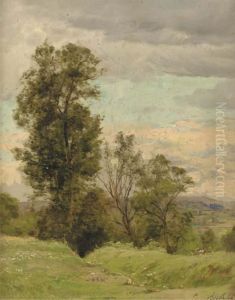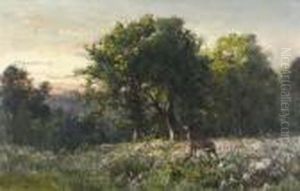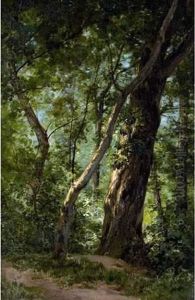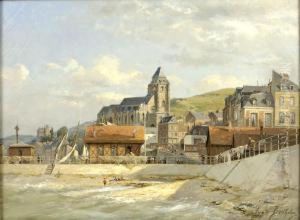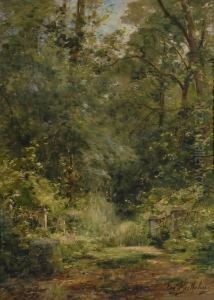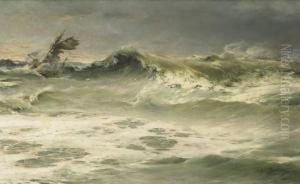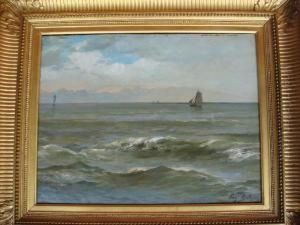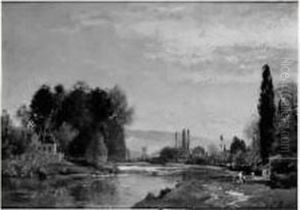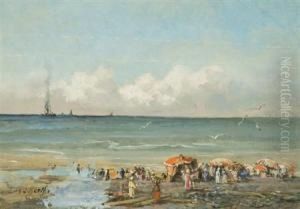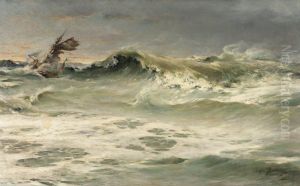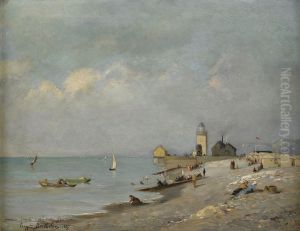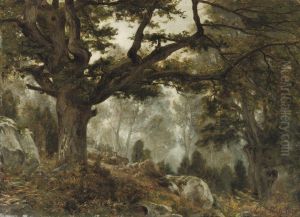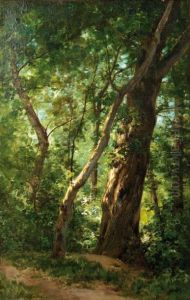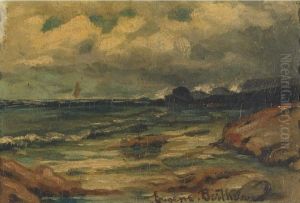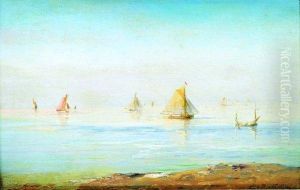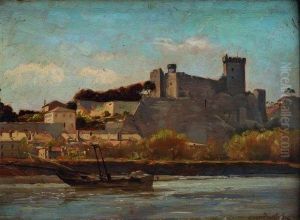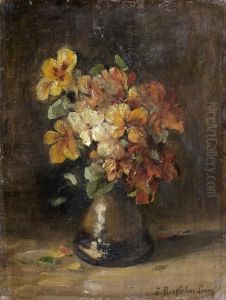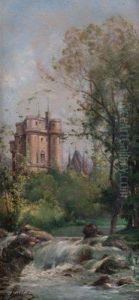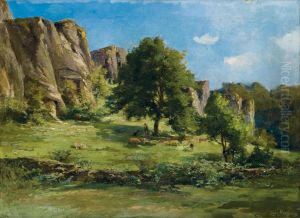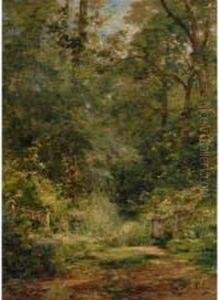Eugene Berthelon Paintings
Eugène Berthelon was a French painter born on July 19, 1829, in Écouen, a village close to Paris known for its artist community. He was part of the Écouen School, a group of painters who lived and worked in the area, each artist bringing their unique perspective and style to their work. Berthelon specialized in landscape painting, often depicting the French countryside in a realistic manner, capturing the subtle changes in light and atmosphere that characterized the various times of day and seasons.
Berthelon's work was influenced by the Barbizon School, which emphasized painting en plein air (outdoors) and focused on the beauty of the natural landscape. He often painted the forests, rivers, and rural settings of France with a delicate touch and a keen eye for detail. His approach to landscape was traditional, and his work can be characterized by its serene beauty and technical skill.
Throughout his career, Berthelon exhibited his work at the Paris Salon, an official art exhibition of the Académie des Beaux-Arts in Paris. Exhibiting at the Salon was considered prestigious and was an important venue for artists to gain recognition. His paintings were well received, and he established a reputation as a skilled landscape painter.
Despite the quality of his work, Berthelon did not gain the same level of fame as some of his contemporaries. Nevertheless, he left behind a significant body of work that contributes to the understanding of 19th-century French landscape painting. His paintings can be seen in museums and private collections, where they continue to be appreciated for their tranquility and natural beauty.
Eugène Berthelon passed away on December 11, 1916, leaving behind a legacy as a master of French landscape art. His contributions to the Écouen School and his influence on the appreciation of the French countryside in art are still recognized by art historians and enthusiasts today.
